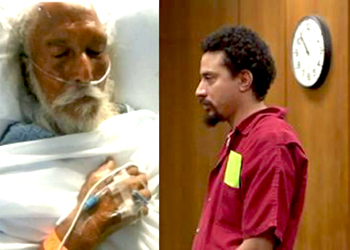Washington, Jun 3: An 82-year-old Sikh grandfather was brutally beaten with a steel pipe by a man who reportedly targeted him for looking like one of “those people”.

Two years later, members of Mr Singh's Sikh community say that while his physical wounds have healed, they are still waiting for closure in the case because of a third delay in sentencing.
The assailant, Gilbert Garcia Jr who was 29 at the time of the 2013 incident, was initially charged with attempted murder but admitted elder abuse and a hate crime in February.
And as they wait for Garcia to at last be sentenced, community advocate Ike Grewal told local KFSN news that the attack was all the more troubling because it is believed the attacker confused Mr Singh for a radical Muslim.
“The Sikhs have been attacked all over the United States after 9/11 and this is not acceptable because we have been mistaken as radicals when we are not,” Mr Grewal said.
Speaking to the LA Times shortly after the incident itself, Mr Singh's nephew Charanjit Sihota said that police told him they found Garcia hiding behind a tree in a neighbour's garden, and that as he was arrested he shouted that he hated “those people” and wanted to bomb their places of worship.
Even if his attack was misdirected, legal expert Tony Capozzi told KFSN, it can still be classed as a hate crime. “His hatred was the focus, the driving force, towards that belief," he said. "And the fact that the victim wasn't of the religion he thought it was is of no consequence."





Comments
Add new comment